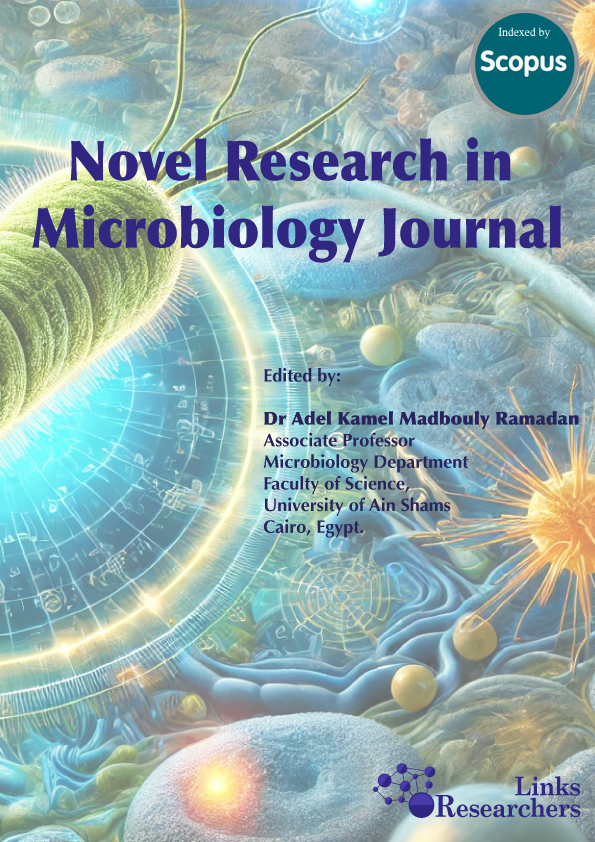Plant growth-promoting rhizobacteria (PGPR): selective screening and characterization of drought-tolerant bacteria isolated from drought-prone soils
Novel Research in Microbiology Journal (2024), 8(3): 2469-2490
Plant growth-promoting rhizobacteria (PGPR): selective screening and characterization of drought-tolerant bacteria isolated from drought-prone soils
Osama M. Ghanem1; Nehal Kamal2; Alaa F. Said3*
ABSTRACT
Plant growth promoting rhizobacteria (PGPR) have evolved to thrive in challenging environments and provide the plants with defense against the harmful impacts of the environmental stressors. The present study aimed to isolate, screen, and identify PGPB obtained from the rhizosphere soil of some field crops at different sites in Ismailia, Egypt. Isolation process was carried out from drought-suffered locations to obtain efficient promising strains adapted to carry out vital processes under an irrigation water shortage. Eight bacterial isolates were selected and identified by phenotypic properties, and were subjected to screening procedures to assess their growth capabilities and evaluate their potential as PGPB. The screening process involved investigating various PGPB features, such as phosphate solubilization, formation of indole-3-acetic acid (IAA), ammonia, and hydrogen cyanide (HCN) production. Among the eight isolates, two isolates only (MW3 and AB3) gave positive results for all the tested plant growth promoting traits. The promising isolates were identified by sequencing of their16S rRNA as Arthrobacter globiformis (MW3) and Micrococcus luteus (AB3). A field trial was conducted to evaluate the activity of the two PGPB and their mixture to act as biofertilizers for maize under deficit irrigation 0.75 from crop evapotranspiration (ETc). All tested inoculants significantly increased yield components of maize, NPK uptake by plants, availability of N and P in soil, activity of some soil enzymes, and total bacterial counts compared to the un-inoculated control. Utilization of stress adapting PGPR showed great potential in overcoming the challenges of sustainable agriculture under environmental stress conditions.
To share on other social networks, click on any share button. What are these?






